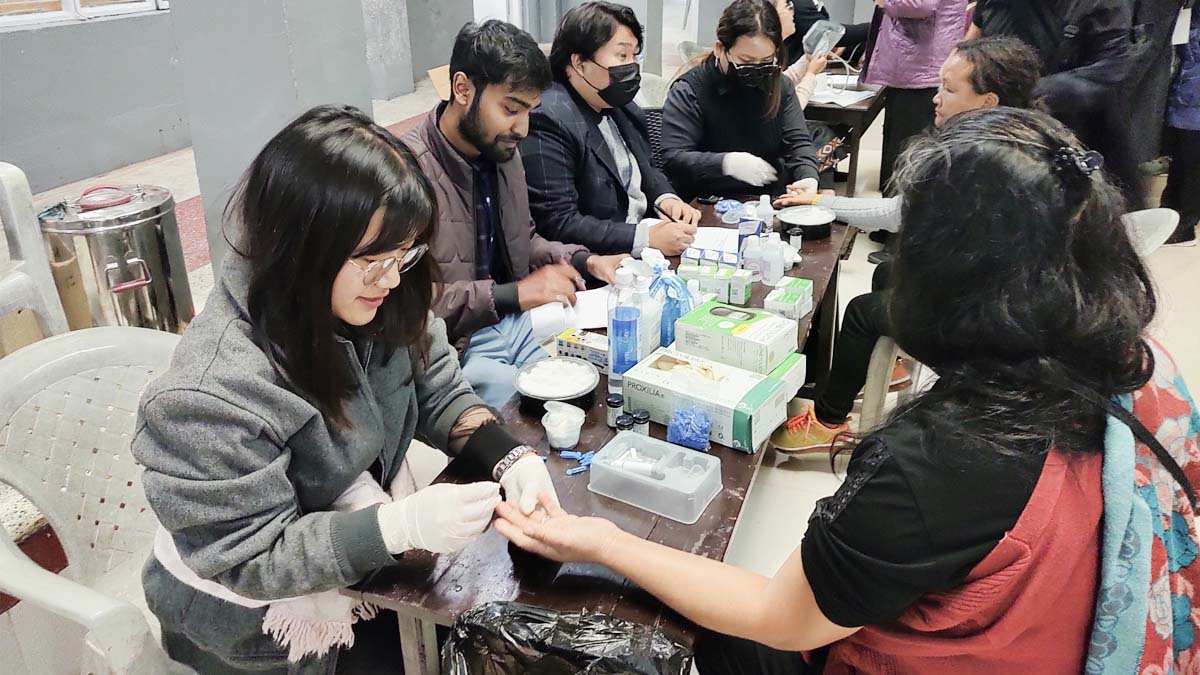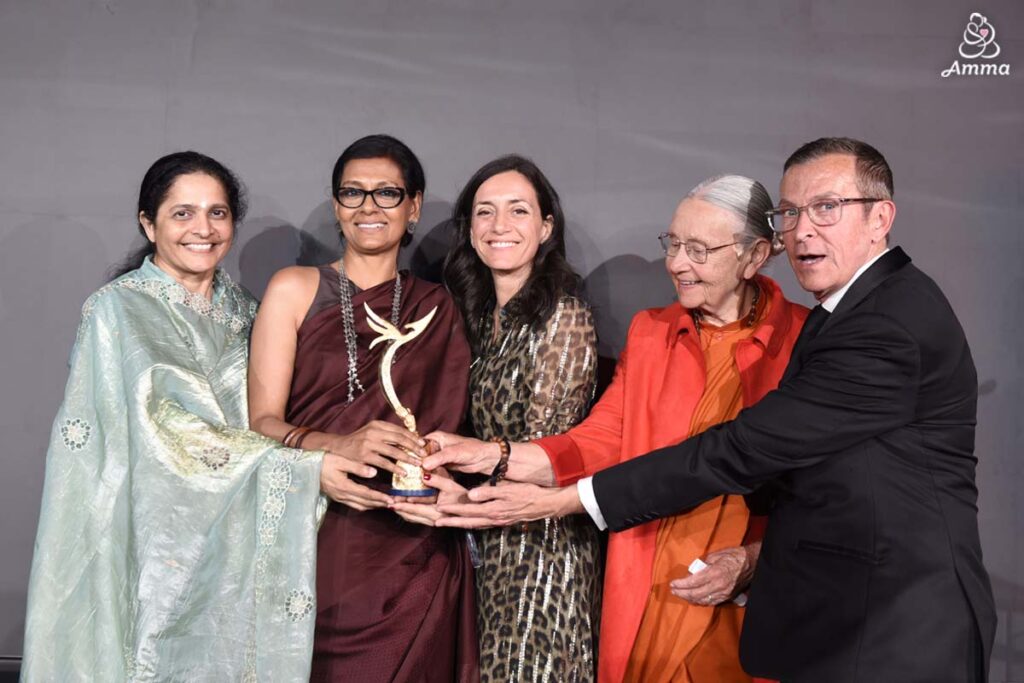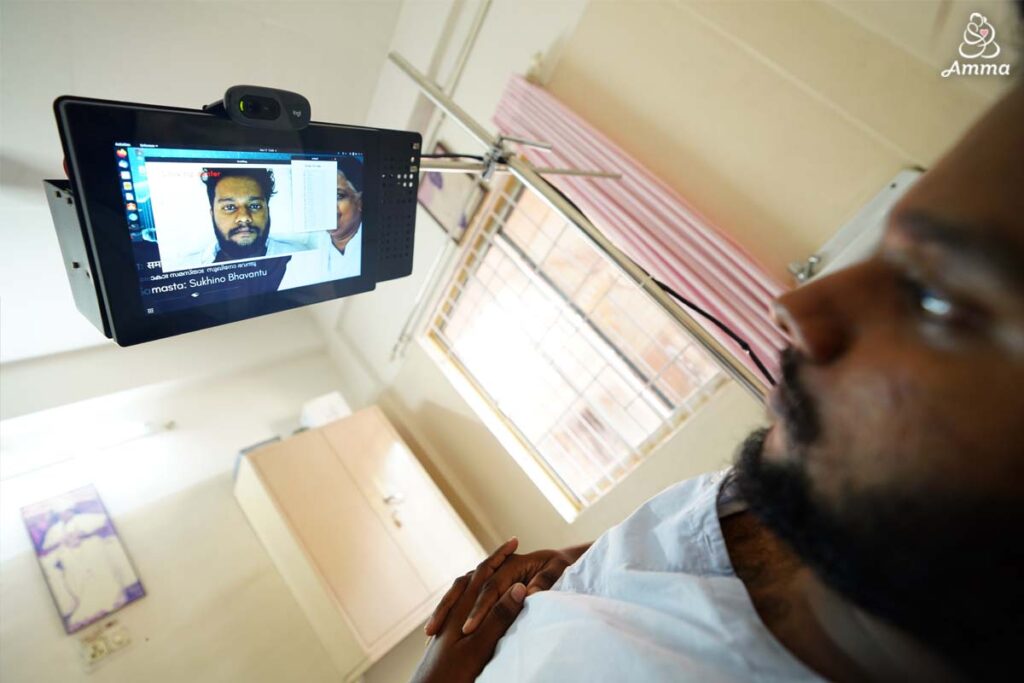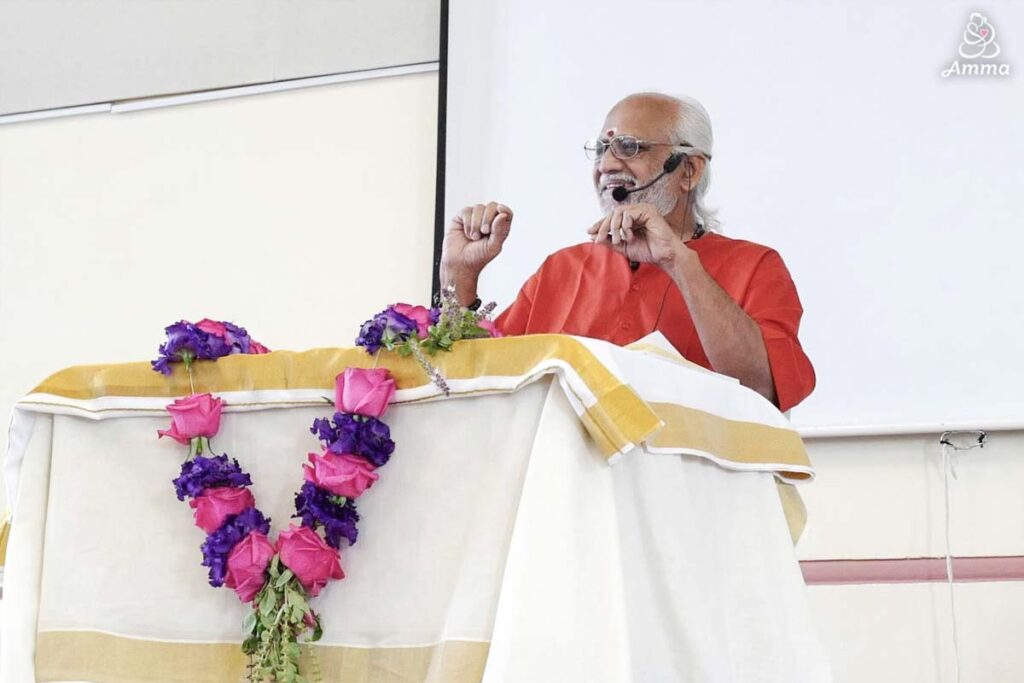A partnership between Amrita Vishwa Vidyapeetham (Amrita University) and Mizoram University addresses key challenges and provides sustainable solutions to pave the way for a brighter future in India’s north-eastern state of Mizoram. The Science, Technology & Innovation [STI] Hub is funded by the Govt of India’s Dept of Science & Technology [DST].
Mizoram is the state with the highest concentration of tribal people, many of whom live below the poverty line. As part of the initiative, the DST-STI Hub hosted a 2-day training and awareness event for Anganwadi workers [AWWs] of Mizoram’s Aizawl [Urban] district. The event saw the participation of 186 AWWs.
An Anganwadi is a type of rural childcare and family health centre under the Indian public healthcare system. Its key focus is to combat child hunger and malnutrition. A typical centre provides basic healthcare in a village and engages with children through pre-school activities.
AWWs connect to family members with support that includes contraceptive counselling and supply, and nutrition education and supplementation. They especially reach out to pregnant and lactating mothers to ensure their babies are well nourished.
Anganwadis also care for adolescents who have dropped out of their education by providing midday meals, iron folic acid tablets, and deworming pills, which they would have otherwise gotten at school.
The program was officially inaugurated by the distinguished Chief Guest Prof Lalnilawma, Hon’ble Minister of State for Rural Development, Horticulture, and Public Health Engineering. The Guest of Honour was Pi Zoramthangi Chhangte, Mizoram’s Director of Women & Child Development, Social Welfare, and Tribal Affairs Department.
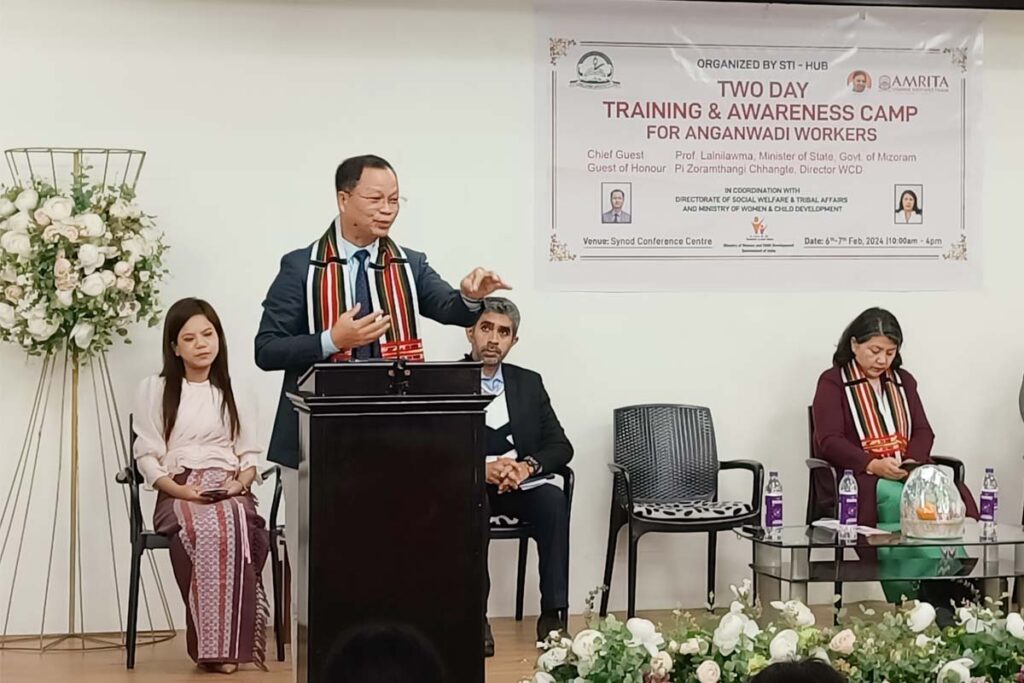
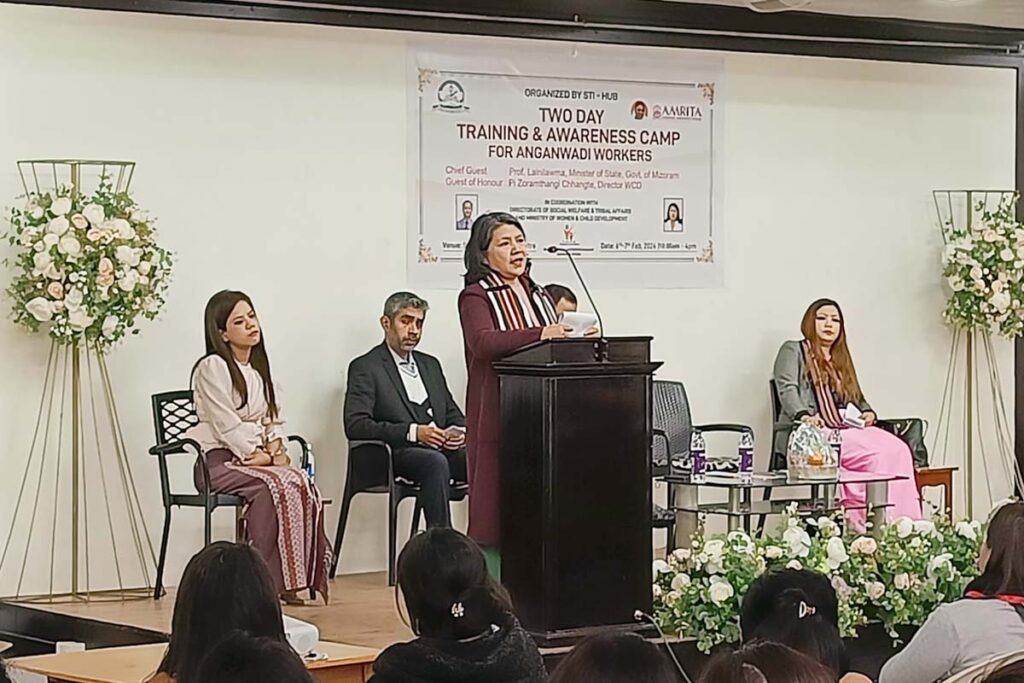
On day 1, the AWWs, who are crucial figures in delivering essential services to children and mothers, were equipped with valuable insights into nutrition fundamentals. This included an understanding of prevalent issues such as malnutrition and anemia and the importance of incorporating iron-rich foods into daily diets. Additionally, the session emphasised the value of adding locally available foods to maximise nutritional benefits and promote community health.
At the end of the session, 12 AWWs were identified as potential master trainers, who will be trained further and more in-depth on nutritive interventions by the DST-STI Hub team. These trainings can be percolated down to the local level and reach all Anganwadis in due course of time.
On day 2, the Anganwadi workers were trained in Digital Literacy, which included working with Gmail and Google Sheets to enhance their efficiency, as well as using Govt apps like Diksha, Poshan Tracker, and DigiLocker to serve their communities better.
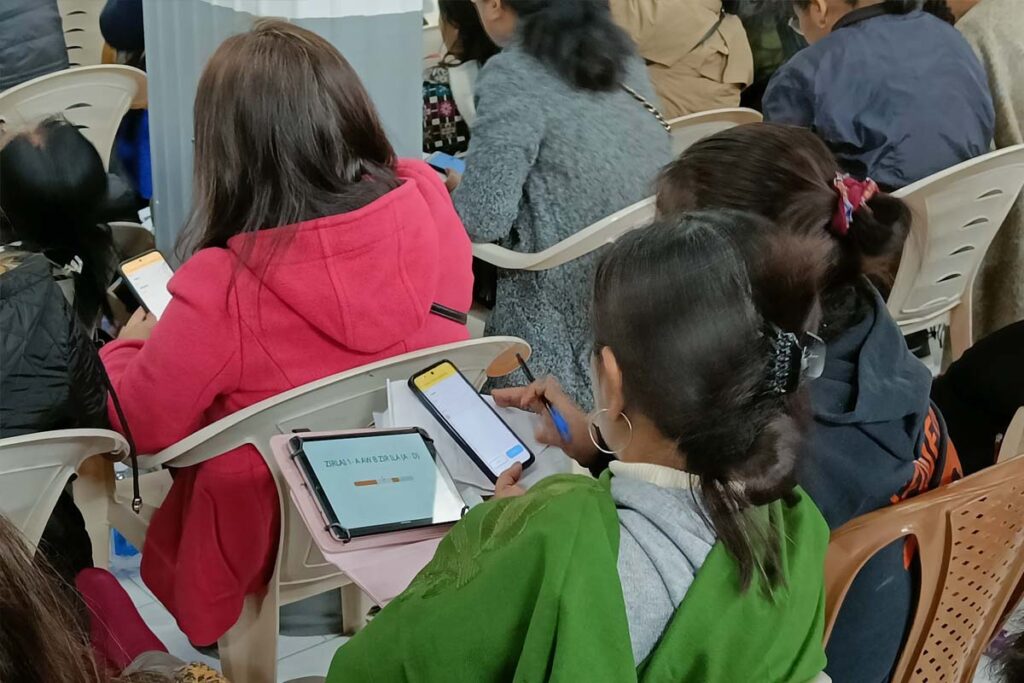
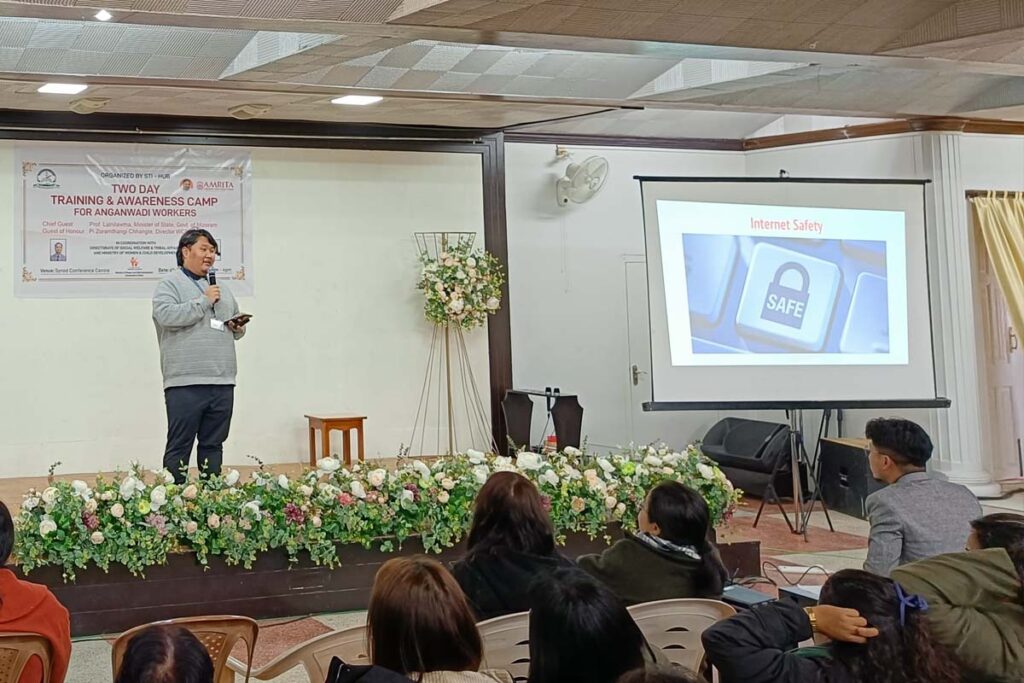
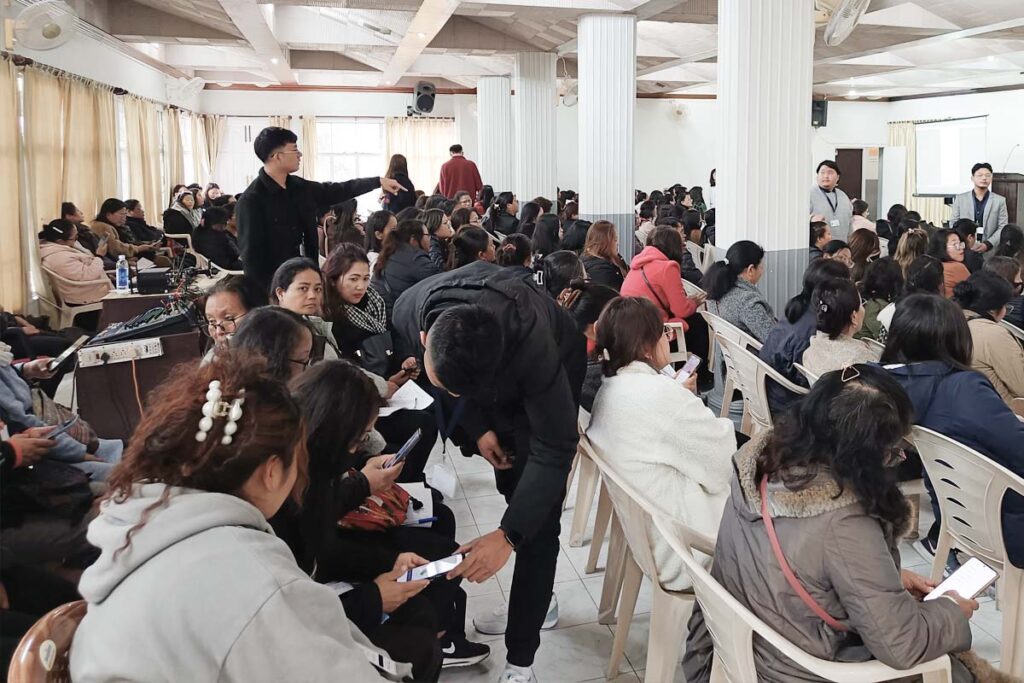
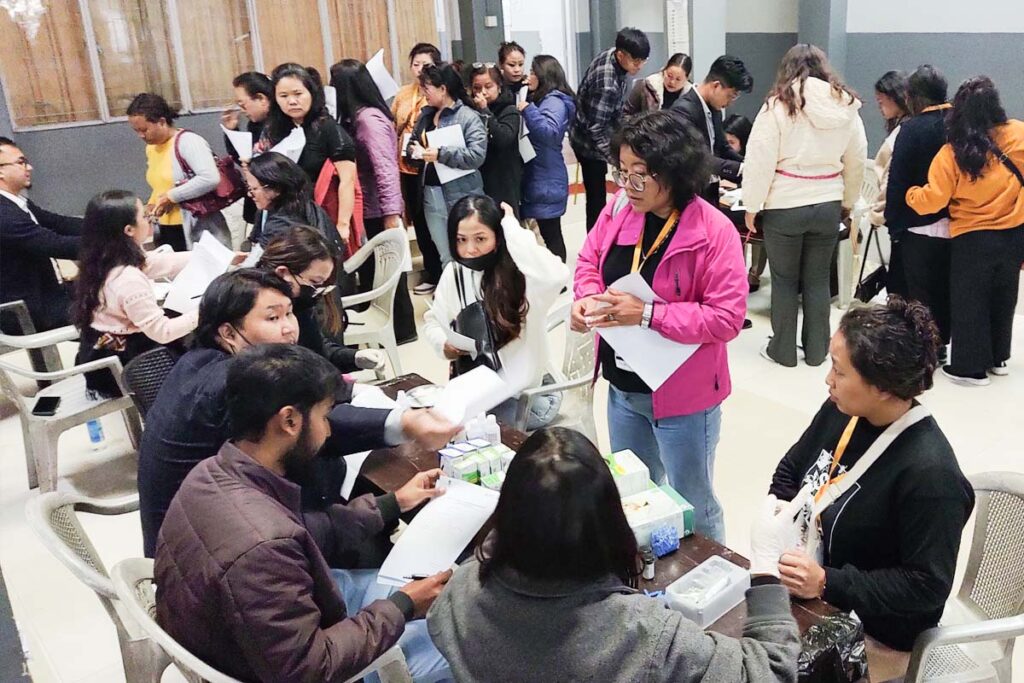
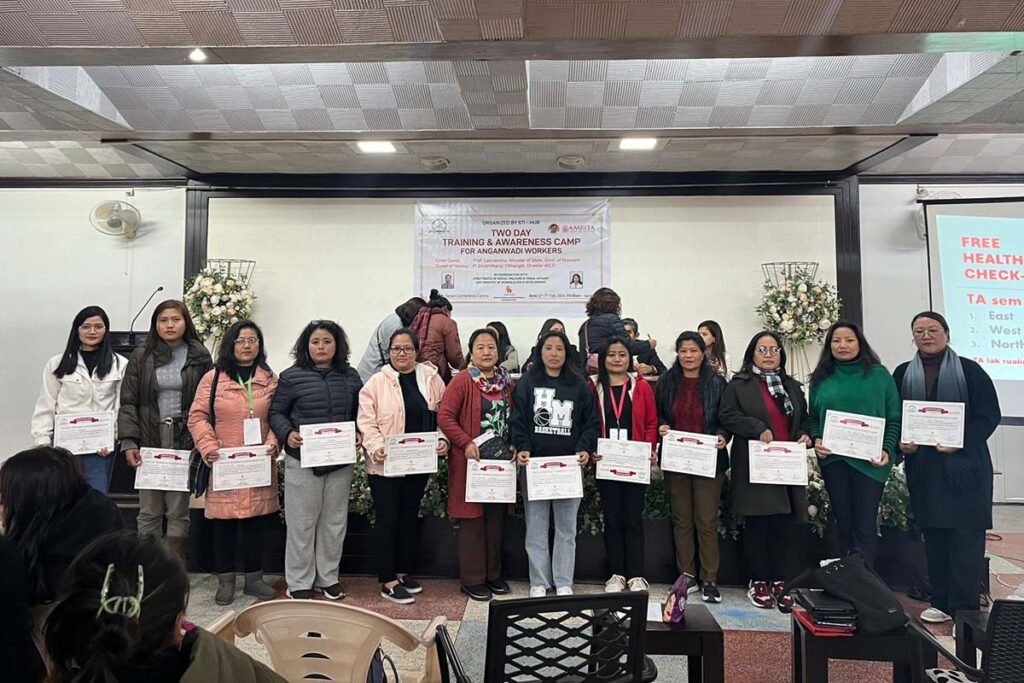
They were also taught about internet safety, including phishing, identity theft, recognising fake news, sharing appropriately on social media, etc. As technology continues to play an increasingly integral role in our daily lives, everyone must have the knowledge and skills to navigate the digital landscape safely and effectively.
The second half of Day 2 was dedicated to Ayurveda. The Ayurveda Intervention Team hosted an impactful Dinacharya (our daily routine) education session to bolster Anganwadi workers. The session focused on how important it is to perform simple daily things like Nasya (nasal instillation) and Abhyanga (medicated oil massage) in order to maintain good health and long life, both of which aid in promoting community health.
Throughout the sessions, Anganwadi workers actively engaged, eagerly taking notes, capturing images of presentation slides, and participating in discussions, demonstrating a high level of interest and receptiveness to the informative and engaging sessions. Many of them expressed enthusiasm and appreciation for the comprehensive and interactive manner of the trainings. The event turned out to be a one-of-a-kind experience for the AWWs of Aizawl.
The event concluded with a free basic health check-up for the Anganwadi workers. Overall, the initiative equipped them with valuable skills, knowledge, and resources to enhance their work and improve the well-being of the people they serve.
Mizoram is a beautiful land of rolling hills, rivers, and lakes. While literacy rates are high, Mizoram also has a high number of unemployed, and the rugged land makes ease of doing business a major challenge.
Substance abuse has been identified as a rising concern among young people. Health indicators highlight the high prevalence of anaemia in children, adolescent girls and women, and there is a growing rate of non-communicable diseases, including various types of cancers.
Under the grant, the DST-STI Hub plans to build Science, Technology & Innovation projects in the districts of Aizawl and Serchhip to promote sustainable livelihoods through Capacity Building and Skill Development for tribal communities.


